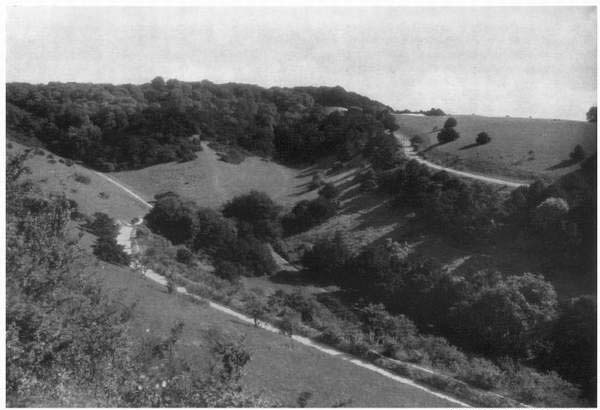
By courtesy of Raphael Tuck & Sons Ltd.
Box Hill, Surrey
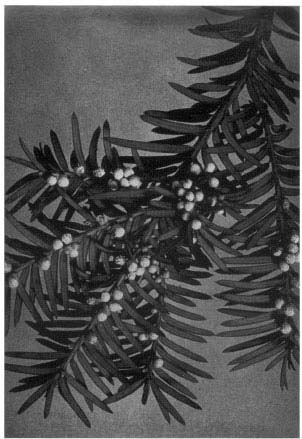
John Markham
b. Yew, Taxus baccata. Underside of spray with male flowers
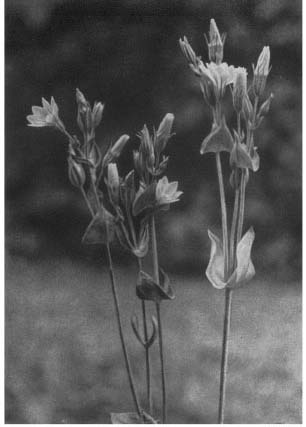
A. E. Hick
b. Yellow-wort, Blackstonia perfoliata; Fleam Dyke, Cambridgeshire
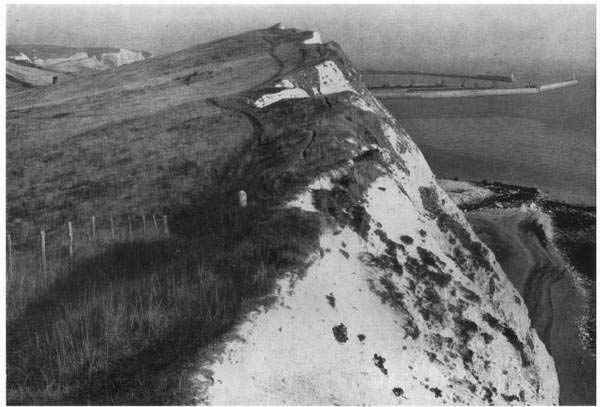
Robert Atkinson
Shakespeare’s Cliff, Dover, with Sea Cabbage, Brassica oleracea, on the chalk cliff
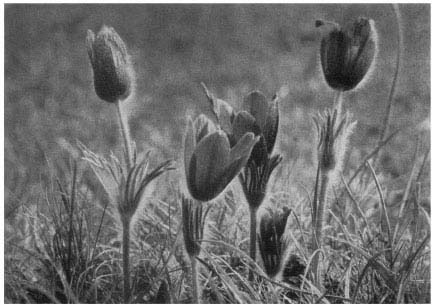
Harry Meyer
b. Pasque Flower, Pulsatilla vulgaris; Bedfordshire, May
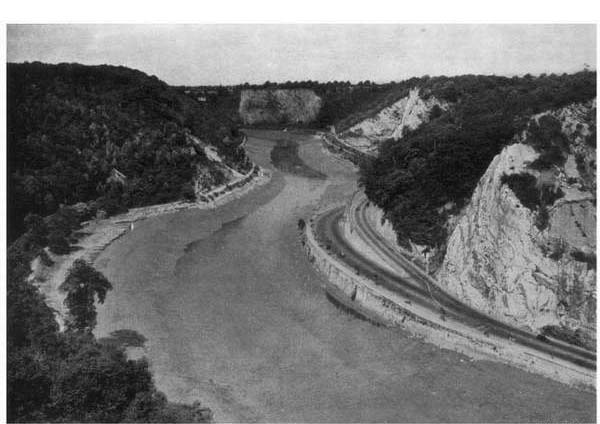
Robert Atkinson
Avon Gorge from Clifton Suspension Bridge (Carboniferous Limestone). Clifton and Durdham Downs on right, Leigh Woods on the left
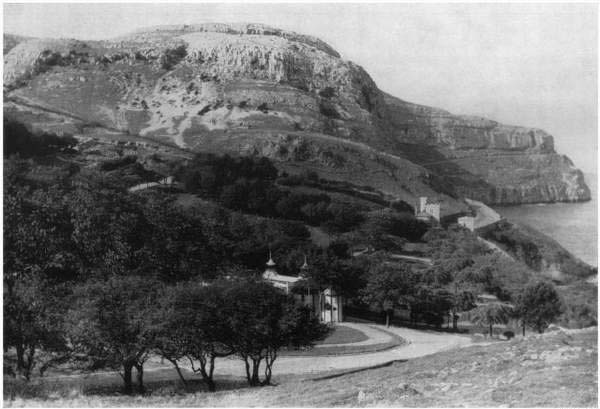
Judges Ltd.
Great Orme’s Head (Carboniferous Limestone). The toll road round the Head can be seen on the right
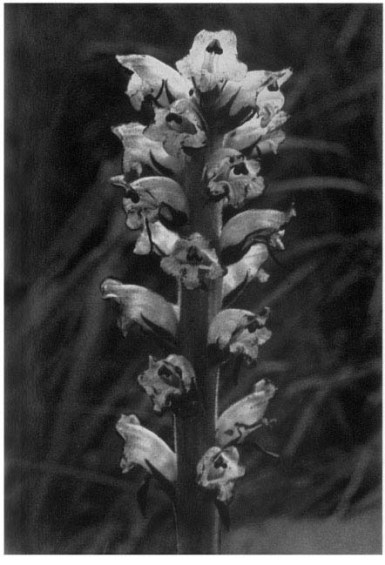
J. E. Lousley
Yorkshire Broomrape, Orobanche reticulata. Restricted to Magnesian Limestone
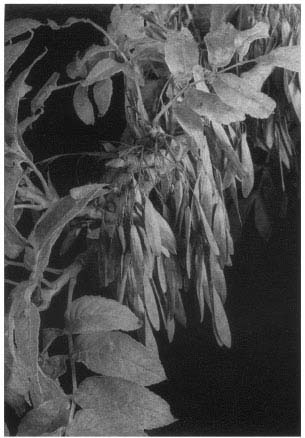
John Markham
a. Keys (fruits) of Ash, Fraxinus excelsior, a characteristic tree of limestone districts
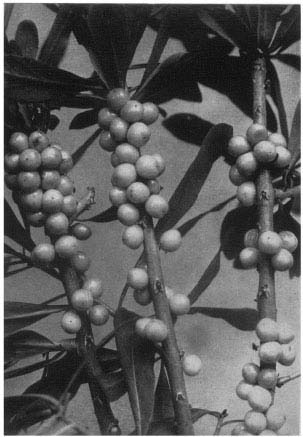
A. T. Johnson
b. Mezereon, Daphne mezereum, in fruit
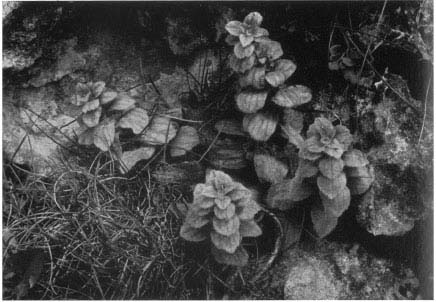
J. E. Lousley
b. Pyramidal Bugle, Ajuga pyramidalis. The Burren, Co. Clare
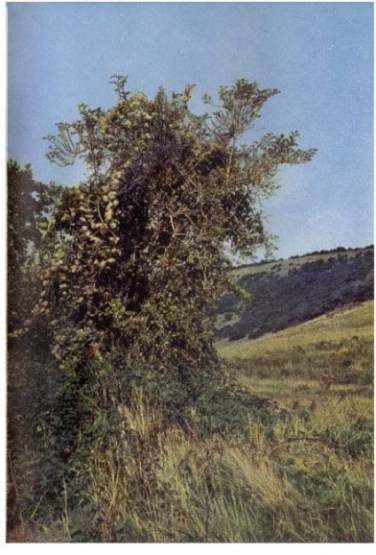
John Markham
TRAVELLER’S JOY, Clematis vitalba, in fruit. A useful indicator of calcareous soils in the south of England. Sussex; October
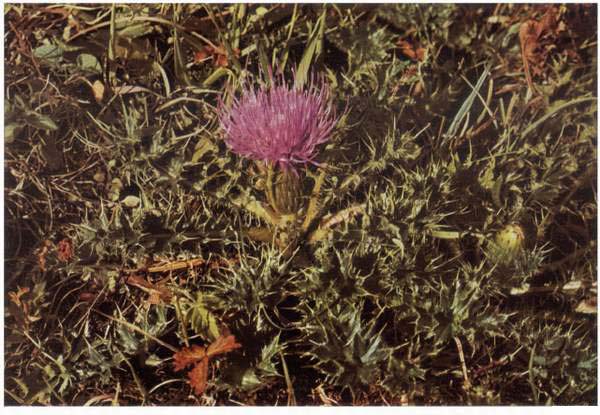
Brian Parkins
STEMLESS THISTLE, Cirsium acaulon; a nuisance to picnickers on chalk downs. Surrey; July
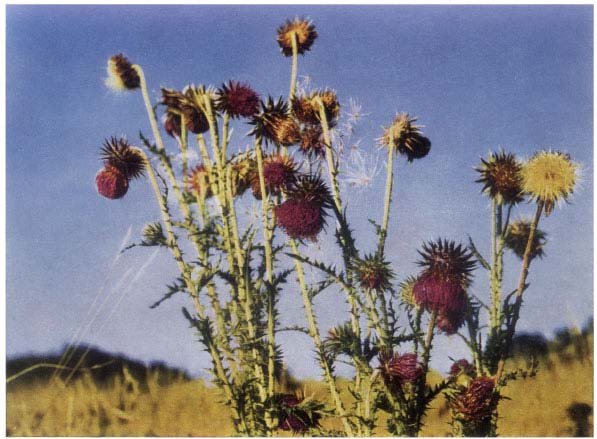
Brian Perkins
MUSK THISTLE, Carduus nutans; easily recognised by its nodding heads. Surrey; July
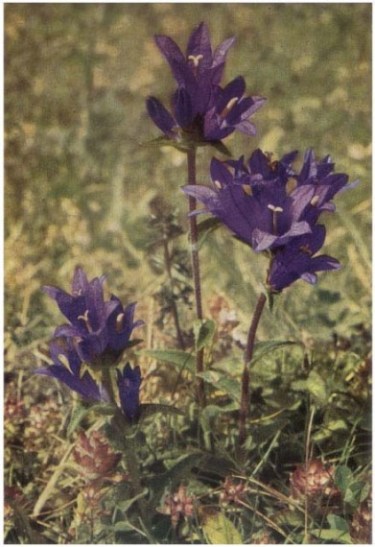
Brian Perkins
CLUSTERED BELLFLOWER, Campanula glomerata; a common autumn flower on chalk and limestone. Surrey; July
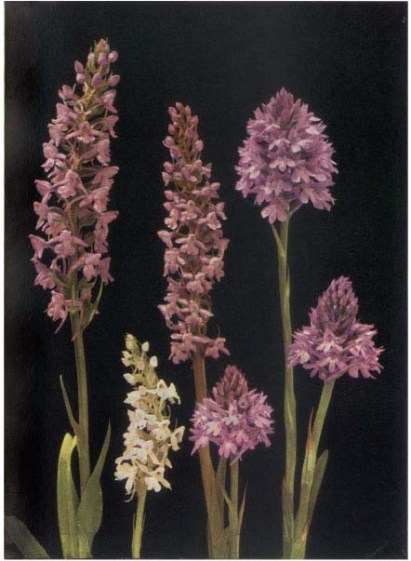
Robert Atkinson
FRAGRANT ORCHID, Gymnadenia conopsea (left) and PYRAMIDAL ORCHID, Anacamptis pyramidalis (right). These two common orchids of open downland are easily distinguished by the shape of the spikes and flowers. From Oxfordshire and Buckinghamshire; June.
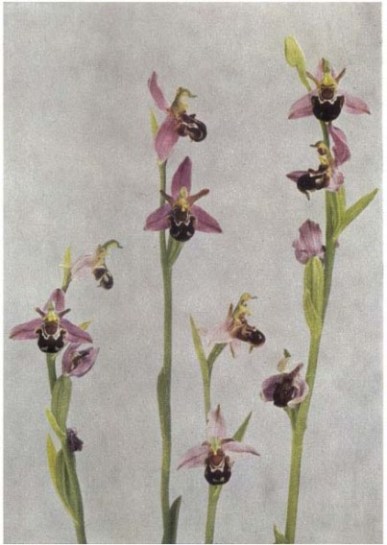
Robert Atkinson
BEE ORCHID, Ophrys apifera; common on calcareous soils and showing a remarkable resemblance to a bee visiting a flower. From West Kent; July
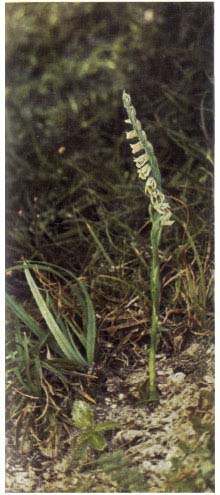
Robert Atkinson
a. AUTUMN LADY’S-TRESSES; Spiranthes spiralis; a frequent, but often overlooked, little orchid. Bedfordshire; September
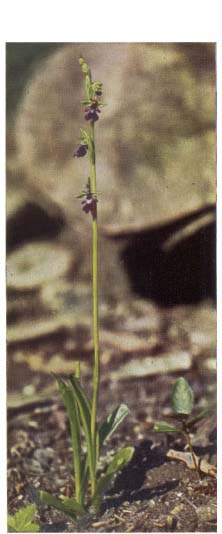
Robert Atkinson
b. FLY ORCHID, Ophrys muscifera; frequent on the edges of calcareous woods. Oxfordshire; June
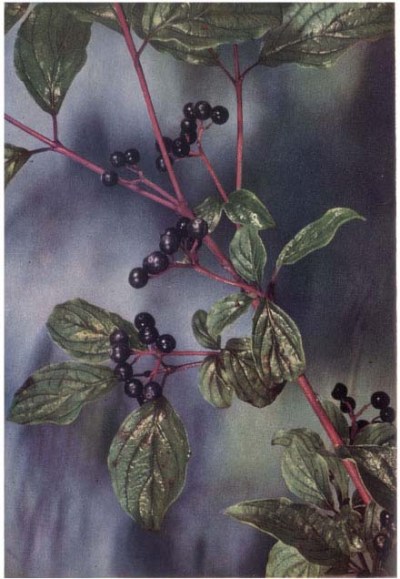
John Markham
DOGWOOD, Thelycrania sanguinea, in fruit. The red twigs make identification easy even in the winter. Hertfordshire; September
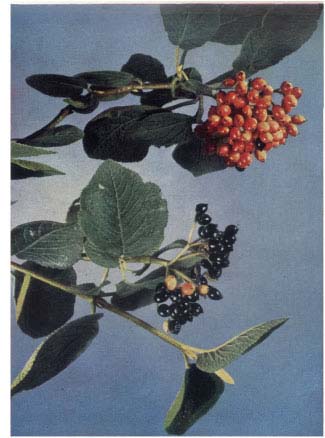
John Markham
b. In fruit. Bedfordshire; September
WAYFARING TREE, Viburnum lantana
A characteristic shrub of chalk and limestone
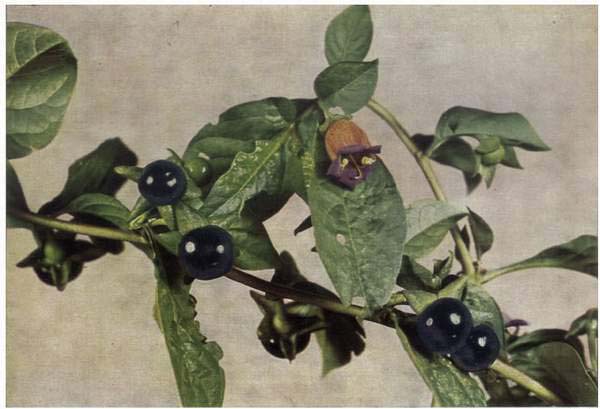
Brian Perkins
DEADLY NIGHTSHADE, Atropa belladonna; very poisonous to humans but eaten with impunity by some animals. This picture shows leaves eaten by caterpillars. From Surrey; August
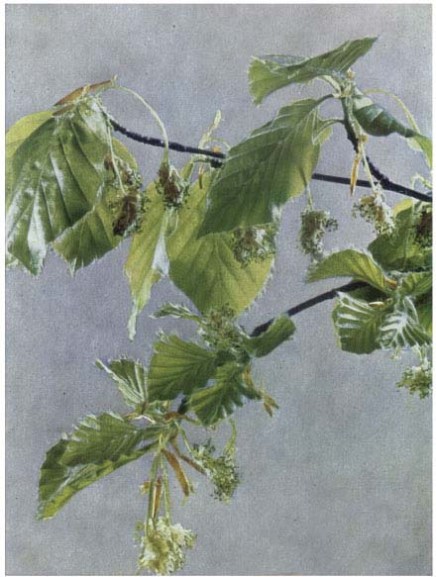
John Markham
BEECH, Fagus sylvatica; the flowers and beautiful young fringed leaves of this characteristic tree of the south-eastern chalk. Hertfordshire; May
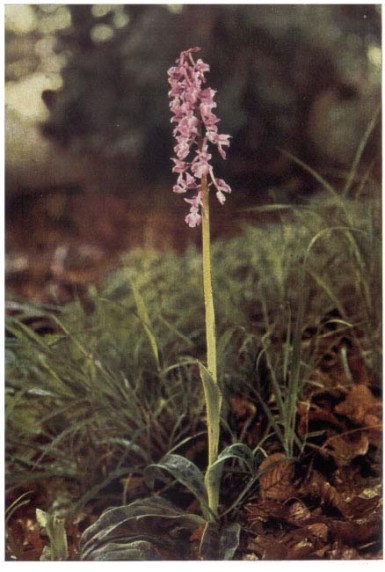
Robert Atkinson
EARLY PURPLE ORCHID, Orchis mascula; a common orchid of woods. Oxfordshire; May
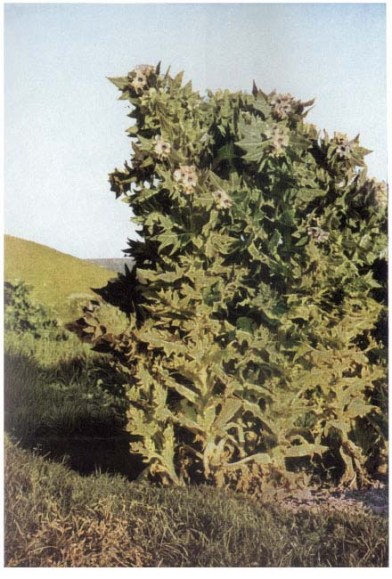
Robert Atkinson
HENBANE, Hyoscyamus niger; an uncommon plant on chalk downs and usually associated with rabbit burrows. Kent; July
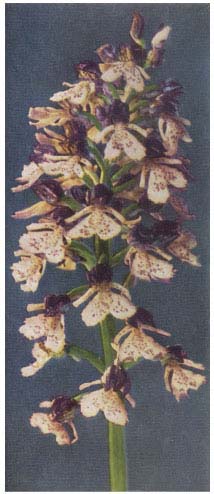
Robert Atkinson
a. LADY ORCHID, Orchis purpurea; a very local plant almost restricted to Kent. Kent; May
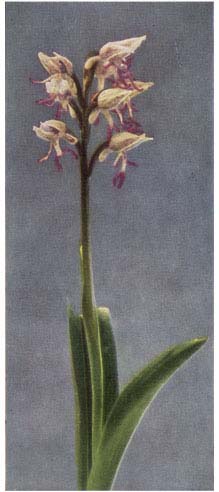
Robert Atkinson
b. MONKEY ORCHID, Orchis simia; one of our rarest orchids, only found in recent years in Kent and Oxfordshire on the chalk. From Oxfordshire; June.
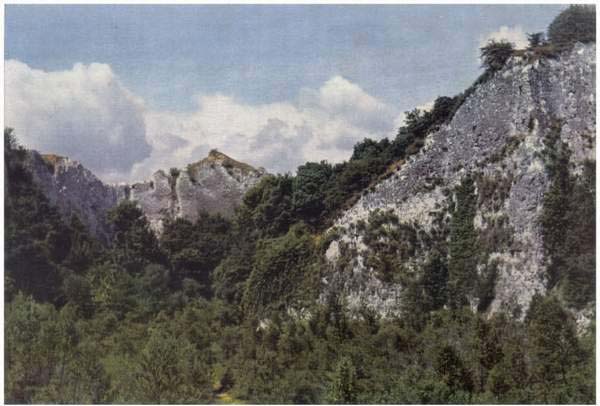
Brian Perkins
A DISUSED CHALK PIT AT GREENHITHE, KENT, showing recolonisation by shrubs and trees after working has been abandoned. June
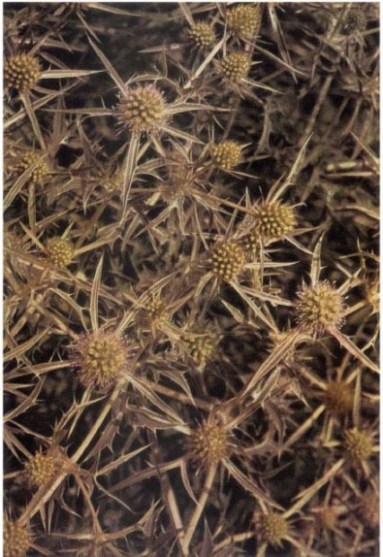
Brian Perkins
FIELD ERYNGO, Eryngium campestre; a rare spiny Umbellifer found in a few places on chalk and limestone. Kent; August
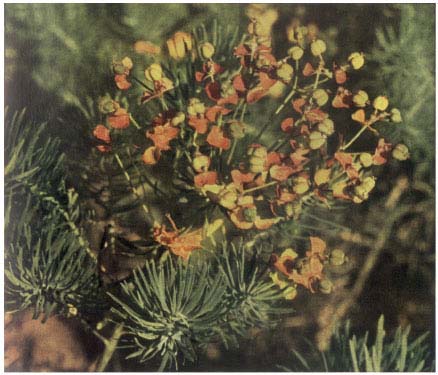
Brian Perkins
a. CYPRESS SPURGE, Euphorbia cyparissias; an increasing species on the south-eastern chalk. Surrey; July
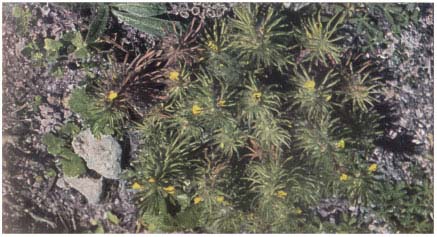
Brian Perkins
b. GROUND PINE, Ajuga chamaepitys; an uncommon Labiate restricted to the chalk of south-east England. Surrey; July
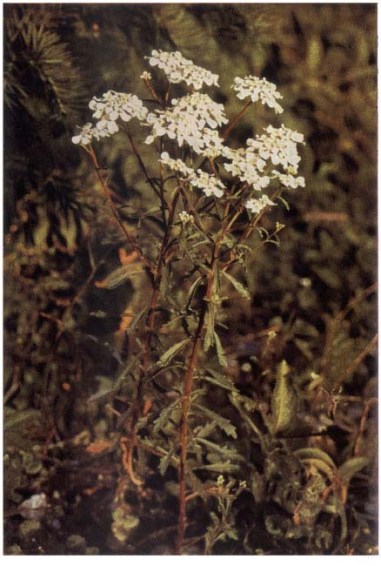
Brian Perkins
CANDYTUFT, Iberis amara; locally common on the chalk of the Chilterns and in a few other places. Surrey; July
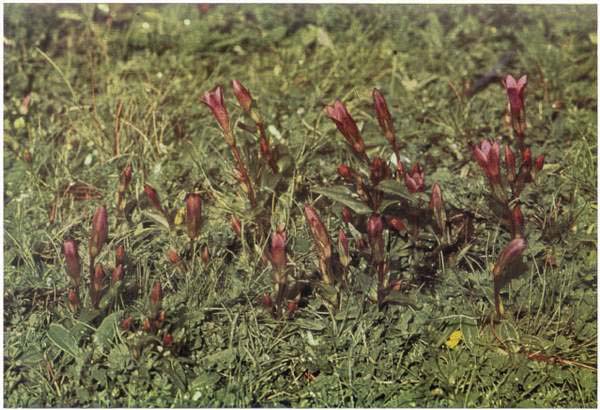
Brian Perkins
EARLY GENTIAN, Gentianella anglica; a local species found in southern England. Surrey; June
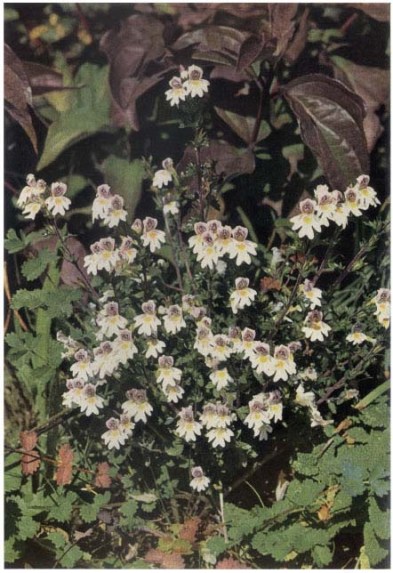
Brian Perkins
LARGE-FLOWERED CHALK-EYEBRIGHT, Euphrasia pseudokerneri. Various species of Eyebright are common on chalk and limestone. Surrey; September
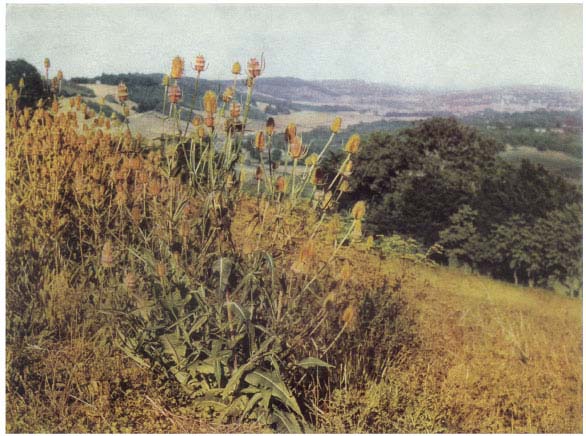
Brian Perkins
COMMON TEASEL, Dipsacus fullonum, growing with Wild Parsnip, Pastinaca sativa, on the North Downs. Surrey; August
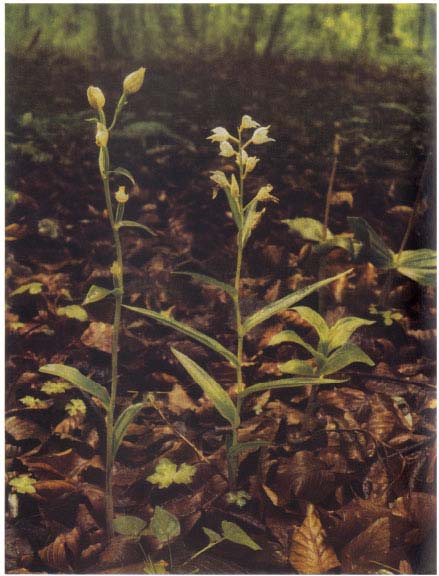
Robert Atkinson
ORCHIDS OF A HAMPSHIRE BEECH-WOOD. The rare Narrow-leaved Helleborine, Cephalanthera longifolia (right) and the common Large White Helloborine, C. damasonium (left), growing with a barren plant of Broad-leaved Helleborine, Epipactis helleborine, and two Common Twayblades, Listera ovata, with their flowering stems eaten off. June
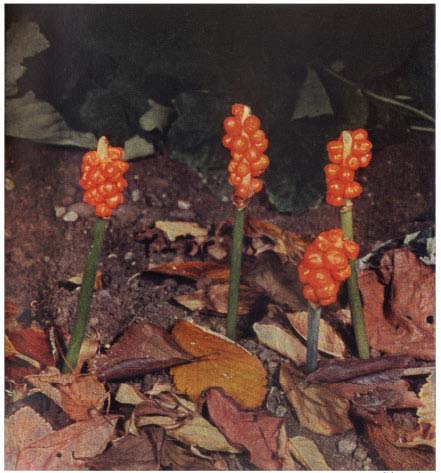
John Markham
CUCKOO PINT, Arum maculatum, in fruit. The fallen leaves are those of the Whitebeam, Sorbus aria. Hertfordshire; September
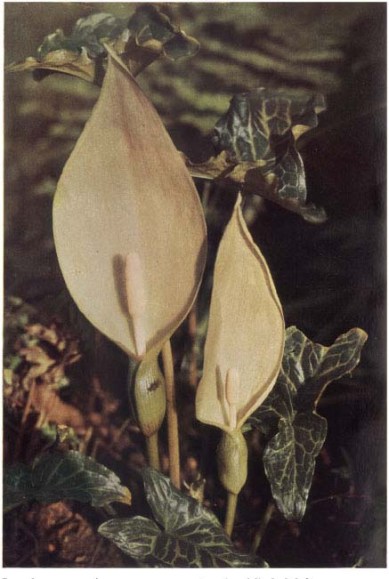
Brian Perkins
RARE CUCKOO PINT, Arum neglectum; a scarce plant of partially shaded places on calcareous and other soils near the south coast. Plant from Sussex photographed in Kew Gardens; June
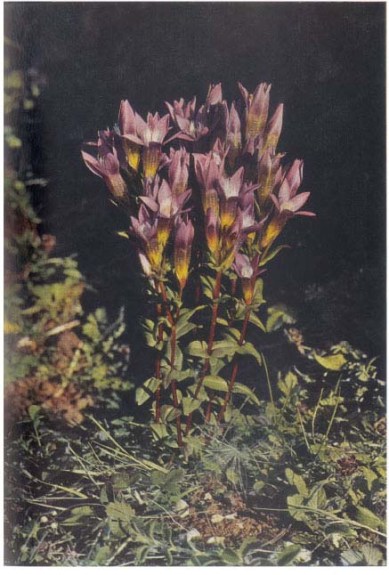
Robert Atkinson
LARGE AUTUMN GENTIAN, Gentiana germanica; a local flower chiefly found on the Chiltern Hills, Oxfordshire; September
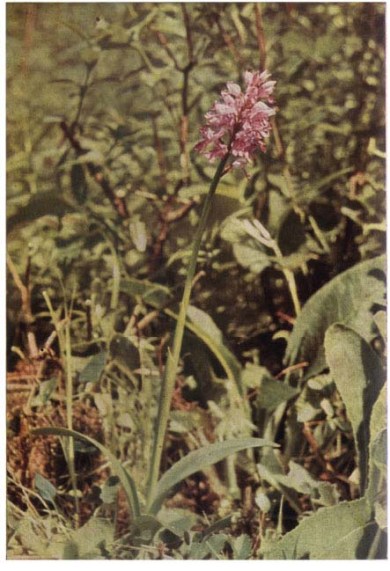
J. E. Lousley
MILITARY ORCHID, Orchis militaris; taken by the author on the occasion of his rediscovery of this very rare orchid which was regarded as extinct in Britain. S. England; May
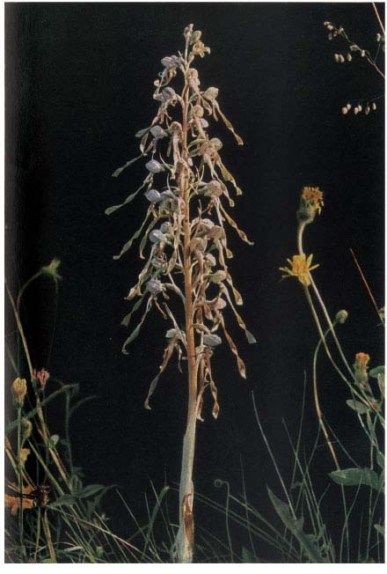
Robert Atkinson
LIZARD ORCHID, Himantoglossum hircinum; the largest and one of the rarest of our downland orchids. Bedfordshire; July
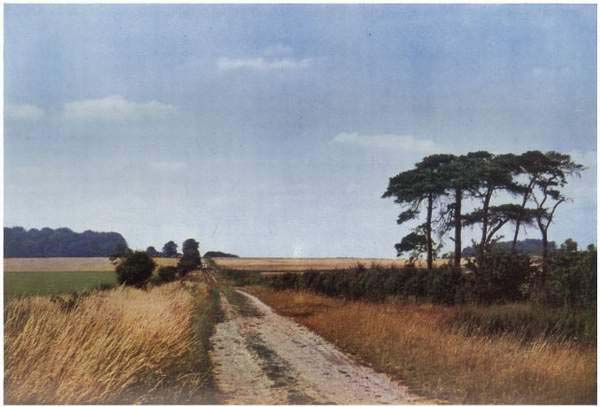
Brian Perkins
GOG MAGOG HILLS, CAMBRIDGESHIRE The downland turf has long been ploughed except on the golf-course and the broad verges by this ancient track. August
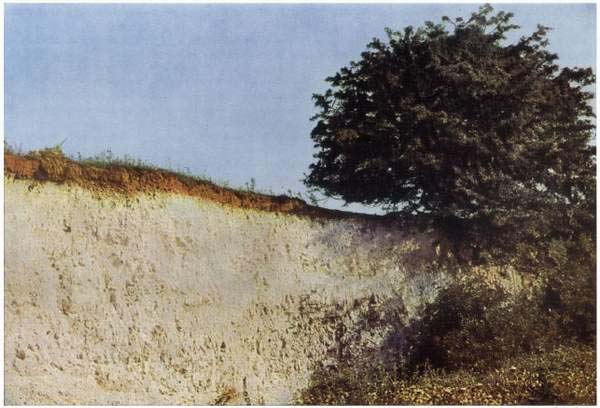
Brian Perkins
A GAMBRIDGESHIRE CHALK-PIT showing the shallow layer of soil above the chalk. The Woolly-headed Thistle, Cirsium eriophorum, is plentiful in the foreground. August
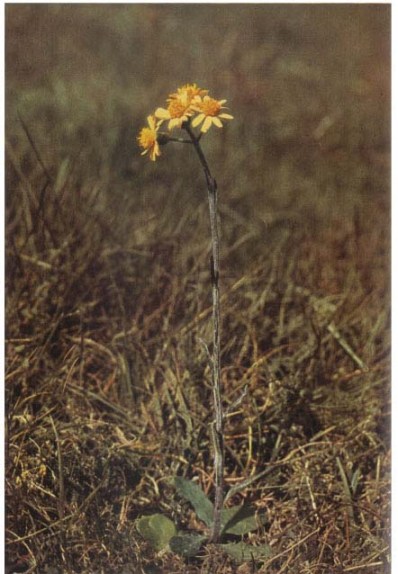
Brian Perkins
FIELD FLEAWORT Senecio integrifolius; a local flower of chalk and limestone. Cambridgeshire; June

Robert Atkinson
EARLY SPIDER ORCHID, Ophrys sphegodes; an orchid which flowers in March and April and has become extinct in many counties. Dorset; May

John Markham
CHEDDAR GORGE, SOMERSET The steep rocks of the Carboniferous Limestone are a sanctuary for rare and beautiful flowers. September

Robert Atkinson
WASP ORCHID, Ophrys trollii; allied to the Bee Orchid (Plate 6) but restricted to a small area of limestone in western England. Gloucestershire; June

John Markham
MALHAM COVE, WEST RIDING, YORKSHIRE. A magnificent amphitheatre of cliffs of Carboniferous Limestone long famous for its flora. July

John Markham
BRACKEN, Pteridium aquilinum, ON LIMESTONE This fern grows abundantly on shallow soils over limestone in districts where rainfall is high. Taken above Gordale Scar, Yorkshire; July

John Markham
LIMESTONE PAVEMENT, INGLEBOROUGH, YORKSHIRE Lily-of-the-valley, Convallaria majalis, in the foreground. July

John Markham
WOODED LIMESTONE PAVEMENT, INGLEBOROUGH, YORKSHIRE Ash, Fraxinus excelsior, Sycamore, Acer pseudo-platanus, and other trees growing up from the cracks in the pavement where they have been protected as seedlings from grazing animals. July

John Markham
BANEBERRY, Actaea spicata, in fruit. A rare plant of Limestone in northern England. Yorkshire; July

John Markham
BLOODY CRANESBILL Geranium sanguineum; a rather widespread species of chalk and limestone which is most frequent in the north and west. Yorkshire; July

John Markham
MELANCHOLY THISTLE, Cirsium heterophyllum; a northern plant sometimes found on limestone. Yorkshire; July

John Markham
DARK-FLOWERED HELLEBORINE, Epipactis atrorubens; an orchid of northern distribution which is specially characteristic of the Carboniferous Limestone. Yorkshire; July

Brian Perkins
RIGID BUCKLER FERN, Dryopteris villarii; locally plentiful over a small area where Westmorland and Yorkshire meet, and found in a few other places. The fronds of this fern are usually of the bluish-green colour shown in the photograph. Yorkshire; June

Brian Perkins
COMMON PINK, Dianthus plumarius, on the ruins of Fountains Abbey. Anciently introduced here on walls built of local Magnesian Limestone. Yorkshire; June

G. H. McLean
IRISH LIMESTONE PAVEMENT NEAR BLACK HEAD, CO. GLARE The home of a unique association of plants of northern and southern distribution. July

G. H. McLean
SPRING SANDWORT, Minuartia verna; a plant of widespread distribution on limestone. Co. Clare, Ireland; July

G. H. McLean
A RARE SAXIFRAGE, Saxifraga rosacea. Allied Mossy Saxifrages are frequent on limestones of the wetter parts of Britain, but this species is known only from Ireland. Co. Clare; June

G. H. McLean
MOUNTAIN AVENS, Dryas octopetala; a calcicole usually found on mountains, but which grows almost at sea-level in the north of Scotland and the west of Ireland. Co. Clare, Ireland; June